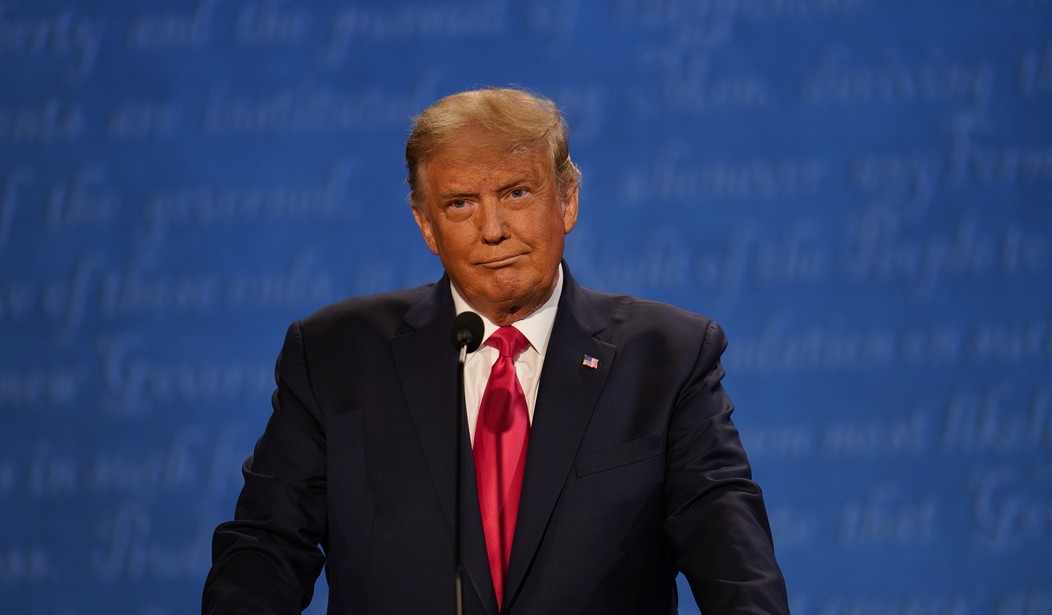On Wednesday, President Donald Trump vetoed the National Defense Authorization Act (NDAA) for fiscal year 2021. Both the U.S. House of Representatives and the Senate passed the NDAA by wide margins, more than enough to override the president’s veto. This bill may become the first Trump veto Congress will override.
Senate Majority Leader Mitch McConnell (R-Ky.) supported the bill despite the president’s veto threats, claiming that the NDAA will deter Chinese aggression. Yet Trump claimed that the bill will help China.
“No one has worked harder, or approved more money for the military, than I have — over $2 trillion,” Trump said in a statement. “During my 4 years, with the support of many others, we have almost entirely rebuilt the United States military, which was totally depleted when I took office.”
“Unfortunately, the Act fails to include critical national security measures, includes provisions that fail to respect our veterans and our military’s history, and contradicts efforts by my Administration to put America first in our national security and foreign policy actions. It is a ‘gift’ to China and Russia,” he added.
The president gave five reasons he would oppose the bill even though he strenuously supports military funding.
1. Section 230
President Trump has long called for abolishing or amending Section 230 of the Communications Decency Act, which grants internet companies key liability for the content that third parties publish on their platforms. Trump specifically called on Congress to strike down Section 230 in the NDAA, threatening to veto the bill without a Section 230 ban.
“Your failure to terminate the very dangerous national security risk of Section 230 will make our intelligence virtually impossible to conduct without everyone knowing what we are doing at every step,” Trump wrote in his statement on the veto.
“The Act fails even to make any meaningful changes to Section 230 of the Communications Decency Act, despite bipartisan calls for repealing that provision,” he added. “Section 230 facilitates the spread of foreign disinformation online, which is a serious threat to our national security and election integrity. It must be repealed.”
While both Republicans and Democrats have criticized Big Tech companies and claimed that Section 230 provides too much protection, Section 230 is arguably extremely necessary to promote the free expression of ideas on the internet. Congress should reform Section 230 to clarify what it does and does not allow Big Tech companies to do, but it would not be wise to strike the law entirely.
While there may be a tangential connection between national security and Section 230 reform, Trump’s decision to demand Big Tech reform in the NDAA seems misplaced.
2. Renaming military bases
The NDAA includes a provision to rename military bases that bear the names of Confederate generals. President Trump has long opposed the campaign to strike Confederate statues and monuments from the public square, rightly arguing that the activists would move from Confederate monuments to monuments of America’s Founding Fathers (as repeatedly happened this summer).
Trump’s statement noted that the NDAA “includes language that would require the renaming of certain military installations. Over the course of United States history, these locations have taken on significance to the American story and those who have helped write it that far transcends their namesakes.”
“My Administration respects the legacy of the millions of American servicemen and women who have served with honor at these military bases, and who, from these locations, have fought, bled, and died for their country,” Trump argued. “From these facilities, we have won two World Wars. I have been clear in my opposition to politically motivated attempts like this to wash away history and to dishonor the immense progress our country has fought for in realizing our founding principles.”
‘F*** Thanksgiving!’: Antifa Topples Statues of George Washington, Veterans to Fight ‘Colonization’
3. Limiting the president’s use of military funds
Trump also faulted the NDAA for restricting “the President’s ability to preserve our Nation’s security by arbitrarily limiting the amount of military construction funds that can be used to respond to a national emergency. In a time when adversaries have the means to directly attack the homeland, the President must be able to safeguard the American people without having to wait for congressional authorization.”
4. Slowing the rollout of 5G
Trump also claimed that an amendment in the bill “would slow down the rollout of nationwide 5G, especially in rural areas.” The NDAA seems to involve two 5G-related provisions: a measure to “support the development of a 5G wireless network by establishing the Public Wireless Supply Chain Innovation Fund and the Multilateral Telecommunications Security Fund,” and a measure to reduce foreign influence in 5G — combatting the influence of Chinese technology.
5. Preventing Trump from bringing troops home
Finally, the president claimed that the NDAA restricts his ability to bring American troops home from overseas.
“Numerous provisions of the Act directly contradict my Administration’s foreign policy, particularly my efforts to bring our troops home,” Trump explained. “I oppose endless wars, as does the American public. Over bipartisan objections, however, this Act purports to restrict the President’s ability to withdraw troops from Afghanistan, Germany, and South Korea.”
“Not only is this bad policy, but it is unconstitutional,” the president argued. “Article II of the Constitution makes the President the Commander in Chief of the Army and Navy of the United States and vests in him the executive power. Therefore, the decision regarding how many troops to deploy and where, including in Afghanistan, Germany, and South Korea, rests with him. The Congress may not arrogate this authority to itself directly or indirectly as purported spending restrictions.”
This seems to be the most serious of Trump’s objections. If the president has rightly characterized these provisions, they may indeed be unconstitutional.
Tyler O’Neil is the author of Making Hate Pay: The Corruption of the Southern Poverty Law Center. Follow him on Twitter at @Tyler2ONeil.









Join the conversation as a VIP Member